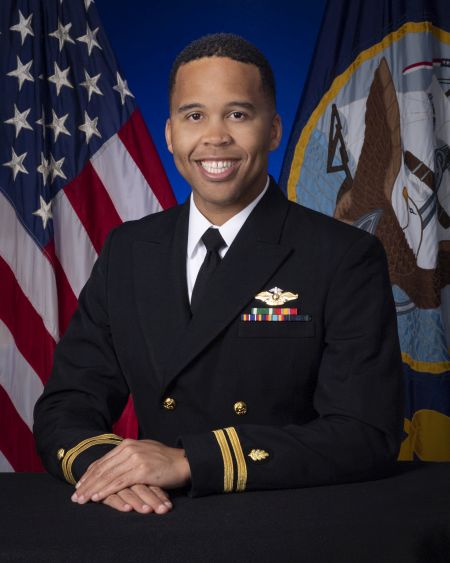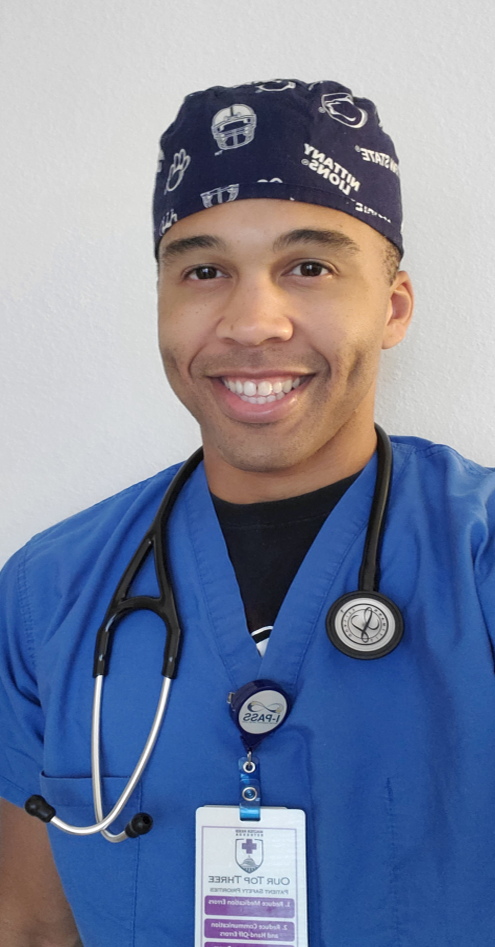Getting an education is crucial. While many schools and programs are universal, the way children learn and interpret information is not the same. Some students, such as Dr Richard Moses, MD, struggle, thus requiring special education in order to succeed.
Dr Moses was raised in a single-parent household by his mother alongside four other siblings.
 Lieutenant Commander Richard Moses MDHis mother, unable to finish college, worked many jobs to make ends meet and relied on school as a village for help. That alone presented many struggles, but requiring special education was an additional struggle. Fortunately, in special education, Dr Moses was able to find the support he needed. “I came across two teachers, Ms. Simpson and Ms. Woods. This was probably in about sixth grade. They got me interested in reading. I started reading because they gave us incentives. If you read the most books you went to Six Flags, you got special lunches, you went out to different places. So I started reading. Then we got into a section of learning where it was about writing. So I wrote a poem. And they’re like this is awesome. And then it just continued to build from there. Those teachers started speaking life into me, saying you can do whatever you want to do. So at that point, I told them, hey, I want to be the first Black president of the United States of America. I don’t know what they were on, but they were crazy enough to believe it. You’re gonna do it, you’re gonna be that next person.” That support continued with his guidance counselor in high school, Ms. Richburg, who eventually set up an interview with a recruiter from Rutgers University where he was accepted for college, as well as with his undergrad counselor who encouraged him to become a doctor.
Lieutenant Commander Richard Moses MDHis mother, unable to finish college, worked many jobs to make ends meet and relied on school as a village for help. That alone presented many struggles, but requiring special education was an additional struggle. Fortunately, in special education, Dr Moses was able to find the support he needed. “I came across two teachers, Ms. Simpson and Ms. Woods. This was probably in about sixth grade. They got me interested in reading. I started reading because they gave us incentives. If you read the most books you went to Six Flags, you got special lunches, you went out to different places. So I started reading. Then we got into a section of learning where it was about writing. So I wrote a poem. And they’re like this is awesome. And then it just continued to build from there. Those teachers started speaking life into me, saying you can do whatever you want to do. So at that point, I told them, hey, I want to be the first Black president of the United States of America. I don’t know what they were on, but they were crazy enough to believe it. You’re gonna do it, you’re gonna be that next person.” That support continued with his guidance counselor in high school, Ms. Richburg, who eventually set up an interview with a recruiter from Rutgers University where he was accepted for college, as well as with his undergrad counselor who encouraged him to become a doctor.
Dr Moses noted the path to medical school is not only a laborious one, but an expensive one. He initially interviewed at Howard Medical School and all set in his mind to go there, he eventually made the decision to attend Penn State University due to the scholarship offered to him understanding that this would reduce his financial burden. Unfortunately, the scholarship still wasn’t enough to cover expenses and he didn’t qualify for loans. This led him to apply for the United States Navy Health Professional Scholars Program which covers the cost of medical school in exchange for service. He received the scholarship and this helped ensure his ability to afford the four years of medical school.
 Dr Richard Moses, MDWhile he initially wanted to be an OB/GYN, he discusses the changes and challenges that led him to his current position as an anesthesiologist for the United States Navy. “Since the very first year as an anesthesia resident, there hasn’t been a single day where I didn’t love what I do. Now, I am a staff anesthesiologist which is a different feeling, and I’m really enjoying this phase.”
Dr Richard Moses, MDWhile he initially wanted to be an OB/GYN, he discusses the changes and challenges that led him to his current position as an anesthesiologist for the United States Navy. “Since the very first year as an anesthesia resident, there hasn’t been a single day where I didn’t love what I do. Now, I am a staff anesthesiologist which is a different feeling, and I’m really enjoying this phase.”
To learn more about the challenges and disparities higher education presents, especially on Black students, as well as the challenges special education students encounter and the importance of good mentors, listen to the podcast below of the full interview with Dr Kendra Outler, MD from Uzima Health and Wellness with Dr Richard Moses, MD, an anesthesiologist and officer of the United States Navy.